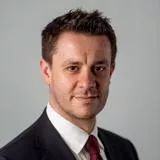“The sticks and stones rhyme is wrong: words can harm a child’s wellbeing and development, and leave lifelong psychological scars. Encouraging language can inspire a child to learn, recover from setbacks, and grow into a fully rounded adult, but being the subject of verbal abuse can twist a young person’s understanding of who they are and their role in the world. Tackling verbal abuse is a key part of raising the next generation of healthy children, and I’m proud to play a helping role.”
Professor Andrea Danese, Professor of Child & Adolescent Psychiatry, King’s College London
28 April 2025
Experts call for urgent action on childhood verbal abuse at House of Commons
In the UK, 2 in 5 (41%) children experience verbal abuse by adults with lifelong consequences to their mental health and wellbeing

Leading experts gathered at the House of Commons today to call for urgent national action to tackle childhood verbal abuse – now recognised as the most prevalent form of child maltreatment[1].
Hosted by Sharon Hodgson MP and convened by the charity Words Matter, the expert-led discussion highlighted the critical need to include verbal abuse prevention in the Government’s mission to raise the healthiest generation of children in history and break down barriers to opportunity.
Speakers at the first event about childhood verbal abuse in the House of Commons included: Professor Peter Fonagy, Head of the Division of Psychology & Language Sciences, University College London (UCL), and Government advisor; Professor Eamon McCrory, CEO of Anna Freud and Professor of Developmental Neuroscience and Psychopathology, UCL; Professor Karen Hughes, Professor of Public Health, Public Health Wales, Bangor University and expert advisor to the World Health Organization; Professor Andrea Danese, Professor of Child & Adolescent Psychiatry, King’s College London, and General Secretary of the European Association for Child & Adolescent Psychiatry; and Jessica Bondy, Founder, Words Matter.
Extensive research shows that verbal abuse – including blaming, insulting, scolding, criticising, or threatening children – can be as harmful as physical or sexual abuse. Its long-term effects include anxiety, depression, eating disorders, sleep difficulties, substance misuse, self-harm, and suicide 1,[2].
In the UK, 2 in 5 children (41%) experience verbal abuse, with over half exposed to it weekly and 1 in 10 every day[3]. Parents, carers, teachers, and activity leaders/coaches are the primary sources. The issue cuts across all social and regional boundaries – it is widespread and indiscriminate.
Sharon Hodgson MP, commenting on the discussion, said: “Important progress has been made in tackling physical and sexual abuse through awareness and intervention. But verbal abuse has remained under the radar. As we’ve heard today, it is now the most common form of child maltreatment, with significant and lasting harm. I’m proud to support Words Matter in bringing experts together to start the essential conversations needed to build interventions, break down barriers to opportunity, and help every child thrive.”
A groundbreaking study by leading economist Dr Xiangming Fang, estimates the global economic cost of verbal abuse in childhood – through its effects on health alone – at £239 billion[4] annually. The figure does not even account for wider impacts on education, employability, and future productivity.
Jessica Bondy, Founder of Words Matter, said: “If we are serious about raising the healthiest generation in history and breaking down barriers to opportunity, we must focus on how adults speak to children. Words have power. For a child, harsh language can tear them down and affect every part of their life – at home, at school, in their future relationships and contribution to society. When we respect children with our words, we teach them to respect themselves and others.”
For further information contact, please contact Patrick O'Brien (Media Manager)

